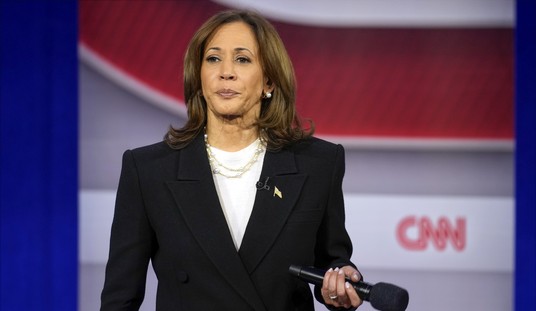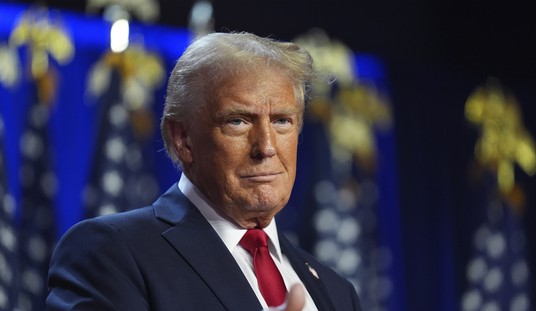Whenever a party loses a major election, there are always varying degrees of denial, excuse-making, and introspection. Democrats are engaging in forms of all three. Let's examine a few of them. First, on denial, this sort of spin (I've seen a number of social media posts and complaints along these lines) attempts to make it seem like the vast majority of Americans aren't satisfied with the election result. "But only X percent of eligible voters..." is pure cope. Elections are won by those who show up, which is why turnout is so important. Unlike some other countries, we don't compel eligible voters to participate, which is a freedom-oriented choice. Imagine watching Donald Trump win 312 electoral votes, sweep the battlegrounds, and win the popular vote – with the GOP also regaining the Senate – and thinking this is the take-away, while groveling before "the world," or whatever.
As I said, pure cope:
Another way to look at the election.
— Rep. Wiley Nickel 🇺🇸 (@WileyNickel) November 17, 2024
Trump was elected President with 31% of the vote from the voting-eligible population in the United States.
That means that 69% didn’t register to vote, didn’t bother to vote or voted for someone else. 🧵
Can we stop with how "this country" voted for Trump? There were 245 million eligible voters this past election. 71 million voted for Trump. That means 29% of eligible voters voted for him. Not the majority of this country and certainly not the majority of eligible voters.
— Liz Trotter (@lizlovestheland) December 4, 2024
Nearly two-thirds of eligible voters cast ballots this year, which is higher than every election since at least 1980, except for 2020. Most of those cycles have featured turnout in the 50s. This year's election was notably much better than average. Beyond that, higher turnout benefited Trump and Republicans this year, in a recent dynamics reversal (as part of the high and low propensity flip-flop we've witnessed):
The 2024 presidential election featured sky-high turnout, approaching the historic levels of the 2020 contest and contradicting long-held conventional political wisdom that Republicans struggle to win races in which many people vote. According to Associated Press elections data, more than 153 million ballots were cast in this year’s race between Republican Donald Trump, now the president-elect, and Democrat Kamala Harris, the vice president, with hundreds of thousands of more still being tallied in slower-counting states such as California. When those ballots are fully tabulated, the number of votes will come even closer to the 158 million in the 2020 presidential contest, which was the highest turnout election since women were given the right to vote more than a century ago...The former president’s victory in both the Electoral College and popular vote — Trump currently leads Harris by nearly 2.5 million votes nationwide — also contradicts the belief in politics that Democrats, not Republicans, benefit from high-turnout elections.
Recommended
Indeed, if more people had voted, Trump's victory margin would likely have been substantially more robust. Just before the election, polling from The New York Times and Siena (which predicted a national popular vote tie, missing the real result by about a point-and-a-half) showed that Trump's lead was largest among eligible American voters with no voting record – i.e., non-participants. Yes, the GOP operation was able to register and turn out a number of these people, who helped fuel Trump's win. But the preference for Trump was strongest within the category of non-previous-voters, vast numbers of whom once again did not vote. According to the NYT/Siena data from late October, this group favored Trump over Harris by nearly 20 points. In other words, even higher voter turnout would have boosted Trump's win, not mitigated or reversed it. Effects like this don't occur in a vacuum:
NYT analysis of cities shifting right. pic.twitter.com/cKfLyz3Vgd
— Tom Bevan (@TomBevanRCP) November 29, 2024
As for the excuse-making category of an electoral response, this sums up my response to the the headline below quite well:
I always wonder when I see this trope (past iterations were about talk radio, then FoxNews) whether the left genuinely doesn't understand that they *already have* an echo chamber at least 10x larger than the right's: the mainstream media, K-12 schools, universities, Hollywood,… pic.twitter.com/YKuo0uPZ6P
— Noah Pollak (@NoahPollak) November 30, 2024
Democrats have a vast array of "influencers" and taste-making institutions on their side. The notion that not getting their message out enough was their problem is wildly delusional. Finally, while there is some genuine and healthy introspection happening within certain precincts of the left and Democratic Party right now, there's also absurd faux-introspection like this happening:
Dem senators are now trying to claim they have no idea why Biden rolled back every Trump immigration order on day one: "Why would you do that? Who are you trying to play to?"
— Philip Letsou (@philipletsou) November 30, 2024
It's all a big mystery to them still. https://t.co/3pNXCER9EQ pic.twitter.com/jJNq6nAK4j
Biden and Harris undid virtually every element of Trump's (largely successful) border policy within the opening days of their administration. Congressional Democrats voted more or less in lockstep against every border security measure Trump wanted when he was president from 2017-2021. The idea that these Democrats were "privately concerned," or something, about any of it is nonsense. Were there any Democratic Senators who publicly demanded, and worked toward, the reinstitution of "Remain in Mexico" while Biden was president? Or are such sentiments reserved for anonymous quotes to reporters after an election loss? Speaking of border security, I'll leave you with this:
YouGov: Do you support or oppose the following Trump policies - Funding a wall that extends along more US/Mexico border?
— InteractivePolls (@IAPolls2022) November 27, 2024
Support: 59%
Oppose: 36%
---
• White: 61-32 (+29)
• Black: 44-37 (+7)
• Hispanic: 47-40 (+7)
---
• Ages 18-29: 49-36 (+13)
• Ages 30-44: 52-35 (+17)
•… pic.twitter.com/IJnvhr6yto
























Join the conversation as a VIP Member